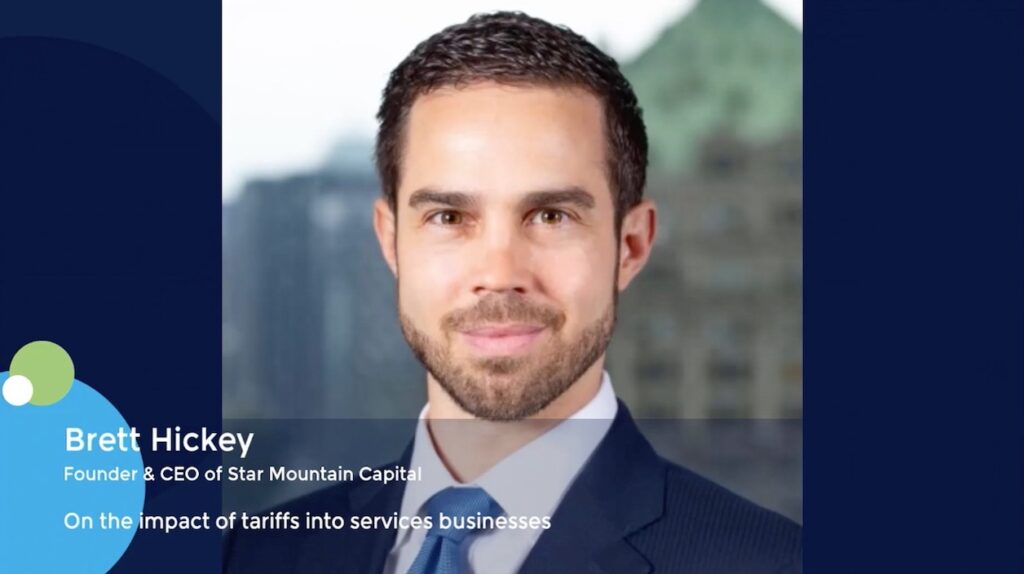Northstar Group’s journey from Indonesia PE hot ticket to acquisition of convenience
Northstar Group ended 2011 on a roll. The Indonesia-focused manager had closed its third fund on USD 820m – nearly three times the size of the prior vintage – and was expanding into Southeast Asia. Moreover, TPG had acquired an equity stake in the management entity, effectively giving the eight-year-old firm a global seal of approval.
Last month, Northstar was effectively gutted. Ares Management assumed responsibility for the three most recent funds and approximately 20 staff, according to sources familiar with the situation. What remains will be wound down. One of the firm’s founders now runs GoTo, a national digital champion and a portfolio company. The other is expected to retire.
Northstar isn’t just the Southeast Asian contender that didn’t quite get there. It is also the last of a quartet of Indonesian GPs – alongside Ancora Capital, Saratoga Capital, and Quvat Management – that entered the 2010s carrying the hopes of LPs willing to bet on a nascent economy some thought could serve as a counterpoint of scale to China and India.
Any attempt to catalogue the rise and fall of one manager should, therefore, be a study of broader failings: GPs that didn’t evolve beyond the networks of their well-connected founders; overly bullish LPs that enabled inflated fund sizes; and a market that has yet to live up to its potential as a PE destination.
“The hype around Indonesia was far greater than what the market size deserved. It was the first wave of you-must-have-Southeast Asia, and Indonesia received more capital than it was capable of absorbing. That has led to poorer returns,” said Wen Tan, founder and CEO of Azimuth Asset Consulting, who worked for LPs that had exposure to Indonesia-focused managers during this period.
“Indonesia is still the largest economy in Southeast Asia, so it can’t be written off. But when there’s a limited number of good deals and everyone is chasing them, that’s difficult.”
An increase in annual average private equity investment across the three five-year periods from 2010 masks individual yearly totals that are a picture of inconsistency, skewed by a handful of large-cap transactions. LPs complain of a similar variability in exits. Against this backdrop, no Indonesia-focused PE fund has achieved a final close since Northstar’s 2020-vintage offering.
Get connected
The TPG-Northstar arrangement was an unusual marriage of global capital and local acumen: TPG took an approximately 10% stake in Northstar while Patrick Walujo and Glenn Sugita, founders of the Indonesian private equity firm, received shares in TPG’s holding company, which listed in 2022.
The two sides were familiar counterparties. Walujo started out as a banker at Goldman Sachs in London and New York, where he came under the wing of Tim Dattels, who later moved to TPG as a senior partner focused on Asia. This connection ultimately prompted TPG to participate as an LP in Northstar’s first two funds (2006, USD 110m; 2008, USD 285m) and become a frequent co-investor.
What Walujo and Sugita had demonstrated was an ability to source opportunities arising from Indonesia’s post-Asian financial crisis corporate restructuring. “These were relatively small but high-multiple investments. It was opportunistic. At the time in Indonesia, you could get hold of cheap assets no matter what the sector,” Walujo told AVCJ in 2012.
He did not respond to questions put to him for this story. Several former Northstar employees referenced in the story didn’t reply to requests for interview or declined to comment. TPG confirmed that the Ares transaction does not affect the firm’s remaining investment in Northstar but declined to comment further.
One of Walujo and Sugita’s early successes was Adaro Energy – perhaps the closest Indonesian private equity has to an origin story and an example of the interconnectedness that characterises deal-making in the country. Family and professional ties run from Astra International, a conglomerate that fell into foreign hands post-1997, to Adaro, and on to that first generation of domestic GPs.
Guiding Adaro’s run to a 2008 IPO helped Sandiaga Uno and Edwin Soeryadjaya, whose father founded Astra, turn Saratoga into a formal private equity firm. Theodore Rachmat, Soeryadjaya’s cousin, Walujo’s father-in-law, and an Astra alumnus, was also involved in Adaro. Pre-IPO rounds featured a nascent Quvat, among others. Walujo and Sugita advised investors who participated in these deals.
The pair are different personalities. Multiple sources portray Sugita, the elder by eight years, as a quiet technocrat-type: well-versed in Indonesian business culture, but uncomfortable in the limelight. Walujo is the public face of Northstar: smart, dynamic, at times complicated or unpredictable. “He’s an off-the-wall thinker who would have been successful regardless,” said one source familiar with Northstar.
Regardless, perhaps, of Rachmat’s standing in business circles. This familial bond may have opened doors, but Walujo’s relationships with Richard Li of Hong Kong’s Pacific Century Group and Dattels also proved influential. One way or another, he became the uber-connected businessman, familiar with everyone from Indonesia’s president to the dozens of local start-up founders that he backed.
“We were flying from Singapore to Jakarta and Patrick knew 90% of the people in business class, I’ve never seen anything like it,” said one source who worked with Northstar in an advisory capacity.
Institutional quality?
Connectivity cuts both ways. LPs want to back dealmakers who can navigate markets like Indonesia where family conglomerates rule the roost, but there is an inherent wariness of the potential conflicts of interest. At best, these individuals have a string of side interests that might prove distracting. At worst, they are beholden to external influences that compromise fiduciary duties as fund managers.
“You invest in these funds because of the people and their networks, but can you build an institutional private equity business around that? It’s a fundamental question that won’t go away,” said Eric Marchand, a founding partner at Southeast Asia-focused fund-of-funds Collyer Capital.
Investors refer to suspicions rather than absolutes – and some are willing to live with these if returns justify the risk. When a manager’s real estate footprint and resources outstrip its fund-driven fee base, this could indicate a blurring of the line between private equity firm and family office. A deal that appears to be off strategy might be about returning a favour to a business associate.
Safeguards can be inserted into fund documentation to address these concerns. Beyond that, external interests and institutional infrastructure collide most visibly at the LP advisory committee (LPAC), which typically approves fund-level activities that present a potential conflict. According to one LP who served on Saratoga’s committee, nearly “every other transaction” required a sign-off.
“When we were doing due diligence, Edwin told me, ‘I can’t stop because people come to me, and I must honour some of these calls,” recalled a second LP that declined to invest in Saratoga.
Northstar faced similar issues. One of the largest Fund III investments was Triputra Agro Persada (TAP), a palm oil plantation operator ultimately controlled by Rachmat’s family. On another occasion, Walujo and Sugita ended up as shareholders alongside a Northstar fund when a portfolio company made an all-share acquisition of a business they had invested in personally.
Nevertheless, the manager is described by several sources as institutionally solid relative to its peer group. In the case of TAP, for example, GIC came in as a sizeable co-investor and participated in price discovery, partly to placate concerns about asset valuation being decided by related parties.
The LP that turned down Saratoga opted for Northstar instead, largely because it appeared to be the more professional outfit. TPG’s involvement was a contributing factor, notably the transfer of Ashish Shastry, a partner at TPG, to Northstar in 2011. Confidence in Walujo was another.
“Patrick had roles as a board director, but we thought those duties could be accretive to the franchise. He didn’t let us down as a fiduciary,” the LP added. “And he said he had no plans to enter politics.”
That was a valid concern. Founder members of Ancora and Quvat served in separate government administrations between 2011 and 2019, while Saratoga’s Uno committed to a career in politics in 2015. None of these firms raised a fund after the 2011 vintage, but governance and performance concerns were apparent before some of these political ambitions materialised.
When a key-person event prior to the final close prompted Quvat to abort its third fund in 2011, belief in the manager was already weakening. At Saratoga, within a year of closing Fund III in 2012, Soeryadjaya and Uno listed an entity comprising personal investments that had some crossover with the funds. It continues to invest under the Saratoga brand, serving as an extension of the founders’ family offices.
Unhelpful headwinds
Northstar has greater longevity, but performance ultimately suffered. Indonesia’s 2012 economic decline didn’t help. First, the commodities cycle turned, hurting exports and causing a trade deficit. Then, US quantitative easing shook emerging markets, the current account deficit ballooned, and the rupiah plummeted. It fell by one-third between 2011 and 2015; as of end-2024, it was down 45%.
Most of the later commodities-related deals struggled, according to records seen by AVCJ. There were four write-offs, including Samudra Energy and Interex Sacra Raya, which featured in multiple funds. Mining services giant Delta Dunia (now Buma International), the largest Fund II position, returned 0.2x.
As a co-investor, TPG was in Bank Tabungan Pensiunan Nasional, a mainstay of Funds I and II. It also did well from BFI Finance, a credit provider, and Indomaret, Northstar’s second convenience store chain homerun following an earlier bet on Alfamart. But the Delta Dunia scars run deep.
“That was a long and sordid period for everyone involved. TPG put in about USD 200m from its fund, but the position was worth close to zero in six months,” said a source familiar with the deal, adding that the commodities downturn followed debilitating operational and management issues.
Challenging macro conditions played havoc with non-commodities investments as well. Even when companies continued to grow and Northstar exited at a premium, currency depreciation ate into returns. A stake in tire supplier Multistrada Arah Sarana was acquired for IDR 691.6bn in 2011 and sold for IDR 1.15trn in 2019. But in US dollar terms, it got in at USD 80m and got out at USD 78.7m.
At least, in that instance, an exit was possible. Fund II, now in its 16th year, still holds a position in Tugu Insurance. Fund III, which launched in 2011, has yet to sell paint manufacturer Indaco Warna Dunia.
From a returns perspective, these funds are feast and famine: 22 realised investments, six winners of 2.9x or more and 13 disappointments of 1x or less. Moreover, extended holds have crippled IRRs: 4.3% for Fund II and 2.3% for Fund III as of March 2025, the records show. The money multiples were 1.3x and 1.2x. Fund I delivered 22.9x and 2.8x.
Northstar returned with Fund IV in 2015 amid the macro uncertainty, eventually closing on USD 810m – just above target – after 18 months in the market. By Fund V, which launched in early 2020, the emphasis was already changing. Commodities had been replaced by the pillars of a next-generation Indonesian economy: consumer, technology, and financial services.
“If you look at where people are making money in Indonesia, it is not from traditional businesses; it is in segments that are growing much faster than the overall economy,” Walujo told AVCJ in 2019.
At the time, Fund IV was riding high on Indomaret, Gojek – which was seeded by Walujo and ultimately became GoTo – and digital lender Bank Jago. Northstar was also making growth-stage tech investments across Southeast Asia and collaborating with Gojek’s VC arm to track the Indonesian start-up phenomenon. Ultimately, this led to the launch of VC strategy and a debut fund of USD 140m.
Liquidity lags
Raising Fund V wasn’t easy, a final close coming in late 2021 on USD 590m, below the USD 800m target. COVID-19 certainly disrupted the process, but LPs were already concerned about performance. And while Fund IV is looking better than Fund III – it was marked at 1.4x as of March, with distributions to paid-in (DPI) of 1x – some of the same characteristics remain, despite the repositioning.
Of 17 Fund IV investments, 10 are fully or partially realised. Four have delivered 2.2x or more; another four are write-offs. Three of the write-offs are technology companies that floundered in the face of sector headwinds: education platforms Topica and Zenius and e-commerce business Tiki. More recently, Fund V has suffered from its exposure to eFishery, a farming tech start-up exposed as a fraud.
Northstar sought to evolve its team in line with the changing opportunity set, but a third LP and a second source familiar with the firm question whether the talent base was deep enough for growth-stage technology. Another manager active in Indonesia claims to have avoided the sector for that reason.
“During COVID, we spent a lot of time looking at VC and young growth company-type deals, and we decided the probability of success was extraordinarily low. The market wasn’t ready for it. We didn’t have the talent for it,” the manager observed. “And there isn’t liquidity in the ecosystem to support it.”
Liquidity remains a challenge for Indonesian private equity more broadly. Industry participants point to underwhelming capital markets – most stock exchanges in Southeast Asia lack sufficient depth to facilitate exits – while trade sales and sponsor-to-sponsor sales have been fitful in recent years.
First, strategic and sponsor interest tends to be limited to assets that have achieved meaningful scale, with pan-regional private equity firms generally unwilling to look at anything below USD 200m. Second, they are becoming more scrutinising in terms of governance and sector exposure.
“It can be hard to sell businesses, especially consumer sector companies caught by COVID,” said Collyer’s Marchand. “Local GPs need guys who can put up big tickets and fewer people are writing those in Indonesia than before. Either you are asking for too much money or it’s not a good business.”
Inevitably, Northstar’s latter years were marked by team turnover. Shastry, a managing partner alongside Walujo and Sugita, moved to KKR in 2016; Bert Kwan, a managing director, left in 2020; co-CIO Choon Hong Tan returned to GIC in 2022; two executive directors, Aditya Kamath and Tommy Teo, left in 2018 and 2019 for Go-Ventures (now Argor Capital) and Vulcan Capital (now Cercano Management).
The motivations were different in each case. While there is a narrative of individuals feeling constrained by an ownership structure and approach to decision-making that heavily favoured the founders, it is not widely endorsed. Multiple sources said that Walujo and Sugita’s preeminence was accepted. However, this was a problem for LPs looking to underwrite Northstar’s long-term sustainability.
“Patrick and Glenn were across all the decisions,” said a fourth LP, adding that they requested, but never saw, documentation about GP ownership and carried interest distribution.
“Others might have influenced how investment memos were drafted, but reliance on the founders was extreme. And when something doesn’t work, are they paying enough attention to sort it out?”
These concerns were exacerbated in mid-2023 when Walujo became CEO of GoTo. Northstar played down the implications: GoTo was a sizeable position in Fund IV, so there was no key person event; portfolio management duties were largely delegated, so day-to-day impact would be minimal; and it wouldn’t be forever. Several LPs told AVCJ at the time that they couldn’t consider Fund VI without him.
End game
Eventually, it became an existential issue. Walujo suggested internally that he was losing interest in private equity towards the end of 2023, according to the first source familiar. Sugita, meanwhile, didn’t want to commit to another fund cycle. When GoTo said in January 2025 that Walujo would remain CEO for another five years, discussions about Northstar’s future had been ongoing for several months.
A solution was required before the Fund V investment period expired in mid-2025, after which there would be a big step down in management fees. Two paths were considered: transfer the best assets from Funds IV and V into a continuation vehicle, buying time for the team to prove itself and then return with Fund VI; or find a new sponsor.
The latter emerged as a more viable option. Ares, which had shown an appetite for M&A-led expansion with the 2023 acquisition of Crescent Point Capital, emerged as a logical buyer. It has taken 45 positions across Funds IV and V and the VC fund. At present, only the VC fund is still making new investments.
Ares didn’t respond to questions about the deal rationale. It could be viewed as a statement of confidence in Indonesia, albeit a qualified one. The acquired assets will be plugged into a multi-geography platform of scale, which is precisely how several LPs say they prefer to play Indonesia: as part of a strategy that isn’t wedded to investing in just one market or even only Southeast Asia.
It is generally agreed that the hype of 2011 inflated funds to unsustainable sizes. Northstar planned to raise USD 500m for Fund III, set the hard cap at USD 750m, and ended up with USD 820m. Saratoga targeted USD 450m and also increased its hard cap to close on USD 600m.
Todd Shin, a partner at Axiom Asia Private Capital, suggests that USD 500m is too large even for a pan-Southeast Asia mandate, noting that erratic deal flow makes deployment more challenging beyond this point. “It’s one reason why you see some successful regional managers incorporate an India strategy into their funds, as it provides a deeper market to deploy a larger fund consistently,” he added.
Had Northstar raised smaller funds, would shifts in strategy and moves into new geographies – described by different sources as “inconsistency between vintages” and “a tendency to chase the next shiny thing” – have been smoother and easier to manage? Or were they an inevitable function of trying to navigate a volatile Indonesian market? Certainly, Northstar wasn’t the only experimenter.
“In the early days, Indonesian GPs did a lot of structured deals with capped upside that didn’t really work. There was some success with toll roads, power, and mines. Then everyone tried hospitals,” said Brian Lim, a partner and head of Asia and emerging markets at Pantheon. “Even retail has been difficult because of COVID and the promise of Indonesian spending that hasn’t really happened.”
Though Indonesia’s long-term fundamentals – strong GDP growth, favourable demographics, an emerging middle class – are not disputed, they elicit fatigue from LPs familiar with the pitch from local GPs but not the promised returns. Sceptics in turn suggest that family groups will continue to pick off the best mid-cap assets and that private equity cannot function without a traditional buyout model.
Others are willing to be more patient. They suggest that new or reconstituted managers may emerge with modified strategies and processes that show they have learned from the mistakes of their forbearers. In this context, Sunil Mishra, a partner at Adams Street Partners, believes Indonesia could replicate India’s journey.
“India went through a tough time between 2006 and 2010 after a successful start from 2002 to 2005. At the time, many GPs were not as experienced and there was too much capital for the industry,” he said. “As the economy grew, opportunities expanded, human capital strengthened, and ultimately the industry has delivered and become more sustainable. You must prove the concept before you can scale.”















